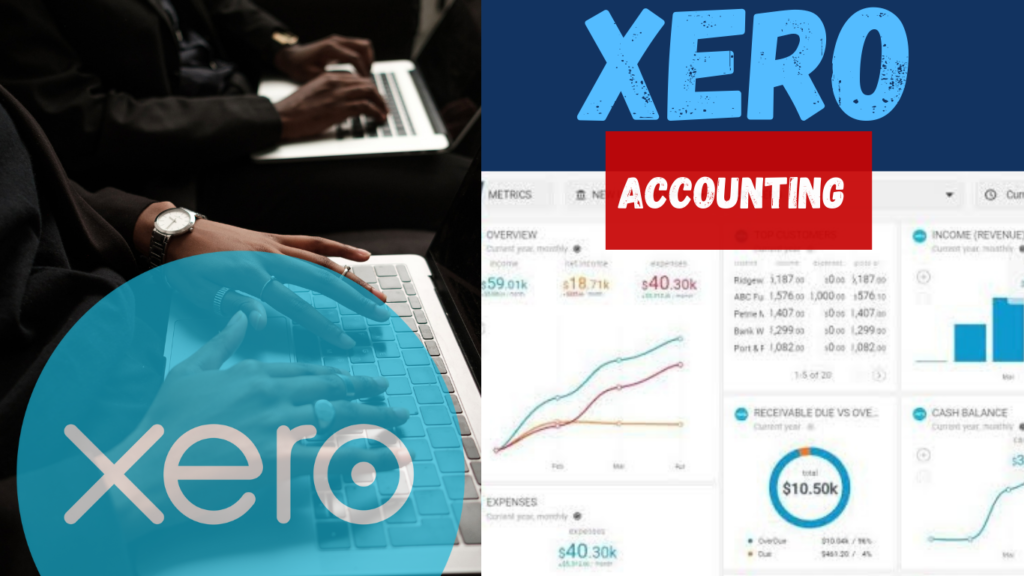Accounting Ethics Basics: Mastering the Compass of Trust

Understanding Accounting Ethics: 5 Basic Accounting Ethics Principles Anyone working in the financial industry needs to understand accounting ethics. This article explains why ethical values such as secrecy, honesty, and integrity are so important. Ignoring these ideas carries the risk of erasing confidence, putting oneself in legal hot water, and upsetting the stability of the financial system. amical system. We will cover the foundations of accounting ethics, their relevance, and how they support confidence in financial markets. Don’t miss this vital information that protects the larger economy as well as your profession. What is ethical in accounting? Are ethics? Accounting ethics, in the context of accounting, refers to the set of moral guidelines and norms that guide practitioners in the discipline. These values guarantee truth, honesty, and integrity in financial reporting and transactions, thereby guiding how accountants should behave and decide in their employment in accounting help companies and stakeholders preserve openness and confidence in financial operations and reporting. Why Does Accounting Ethics Matter? The seamless operation of financial markets and the general state of the economy depend on accounting ethics. Let’s examine the various causes in more detailers: Trust and Credibility: For creditors, investors, and other stakeholders to make wise judgments regarding businesses, financial statements form the cornerstone. Ethical accounting methods ensure that financial statements are reliable and faithfully reflect a company’s financial situation. This builds confidence in the financial system and motivates investment—qualities necessary for economic progress. Reduces Legal Risk: Accountants that adhere to ethical standards avoid behaviors that can cause legal problems. This includes things like insider trading and dishonest accounting methods. Ethical behavior safeguards the financial system overall, as well as the accountant’s reputation and the business they represent. Public Interest: Accountants are financial information custodians. They owe it to the people to ensure that financial records are accurate and not deceptive. Ethical behavior guards the public against false information that can result in incorrect investment choices or perhaps financial disasters. Basically, maintaining confidence in the financial system, encouraging good economic activity, and safeguarding the public interest all depend on accounting ethics’. 5 Fundamental Accounting Ethical Standards Accounting ethics refers to the moral standards and code of behavior that guide the behavior and decision-making process of accountants. Maintaining integrities and confidence in financial reporting depends on these values, which also guarantee that accountants behave in the best interests of their customers, their profession, and the public. Anyone working in the accounting profession should have a basic awareness of account ethics, since it forms the basis of professional behavior and confidence in financial information. Fundamental Ethical Standards for Accountants In accounting, the fundamental ethical standards are honesty, integrity, objectivity, secrecy, professional competency, and These values form the foundation of moral behavior in this field, enabling accountants to navigate challenging and sometimes demanding situations. Honesty In all financial transactions, honesty is about being real and open. This idea ensures the integrity of financial reports by mandating accountants to provide accurate and complete information. An accountant, for example, should not change financial data to show a better picture of a business’s performance. In financial data, honesty builds dependability and comfort. For example, an accountant should not change financial data to paint a better picture of a company’s performance. Honesty is key to maintaining credibility and dependability in financial information. honesty. Integrity Integrity entails adhering to moral and ethical standards, ensuring consistency in behavior, values, techniques, and principles. Even under personal or professional pressure, honest accountants behave in a fair and equitable way. They guarantee that their work represents accurate and fair financial reporting and quickly corrects mistakes. For instance, should an accountant find a mistake in financial records, they should fix it right away instead of hiding or ignoring it. For clients, companies, and the public alike, integrity builds confidence and trust. Objectivity Making objective conclusions based on factual facts, free from personal bias or outside pressure, is the habit of objectivity. Accounting decisions must be impartial and conflict-free. In personal interactions, an accountant should not, for example, prefer one client over another. For example, personal relationships should not cause an accountant to favor one customer over another. The reliability and credibility of financial reporting depend on objectivity. Confidentiality The promise to guard private data from illegal publication is known as confidentiality. Accountants have access to private financial data, and it is their responsibility to make sure this material is kept safe. This principle depends on maintaining legal and professional standards, as well as confidence. An accountant, for example, should not use the financial information for personal gain or divulge it to a rival. Maintaining anonymity guarantees adherence to legal and professional norms and helps to establish confidence. Professional Competence and Due Care Professional competence and due diligence include retaining the necessary skills and knowledge to provide high-quality services. Accountants must follow technical and professional guidelines and remain in professional development. This guarantees their capacity to carry out their responsibilities and make wise decisions. For example, an accountant who keeps up with changes in tax rules guarantees proper client tax filings, proving professional competence. This diligence guarantees they can carry out their duties efficiently, make wise decisions benefiting their clients, and maintain ethical accounting standards. What is accounting’s’ integrity? Integrity is the fundamental guiding idea in accounting ethics. It basically implies, in all facets of your accounting profession, being honest, truthful, and fair. This affects numerous important factors, including: Financial statements and records should be provided faithfully and completely, reflecting the business’s actual financial situation. Data should not be manipulated or significant information omitted. Transparency: A clear and open presentation of financial data will help consumers grasp the state and performance of the business. When needed, technical language should be reduced and supported by concise explanations. Professional judgment should not be distorted by personal prejudices or conflicts of interest. Aiming for objectivity, accountants should base their conclusions just on accurate data and logical analysis. Compliance with Standards: Designed to guarantee uniformity and dependability in financial
How Can Xero Accounting Transform Your Business

Unleash the Full Potential of Your Business with Xero Accounting Describe Xero What actually is Xero accounting? In the past, accounting involved labor-intensive pen-and-paper systems, with accountants painstakingly compiling financial records by hand using calculators and numerous paper sheets. Maintaining a business’s books required reading bills, invoices, and other financial records. The introduction of the internet and other technological developments have transformed this procedure and made it much more effective nowadays. One well-known accounting software platform that small and medium-sized businesses really like is called Xero best known as Xero accounting. The software utilizes a software-as-a-service (SaaS) approach, meaning that access to it requires a subscription. Usually, the price is determined by the quantity of users, the particular services needed, and the length of the membership. What is the operation of Xero? With Xero, small and medium-sized businesses can easily manage their typical accounting duties, such tracking spending and combining revenue from many invoices. By organizing financial data, it gives businesses more time to concentrate on other important tasks like expanding their businesses. Operating on multiple platforms, including PCs, smartphones, and mobile phones, Xero is a cloud-based accounting software. Users may submit invoices and classify bank transactions, among other accounting duties, from any location with an internet connection thanks to this cloud capabilities. Larger companies can use Xero if they are ready to change their workflows, even though it is designed for small and medium-sized businesses. With constant platform improvement, Xero may be able to better serve larger enterprises by increasing its capabilities. What capabilities does Xero offer? Numerous tools are available from Xero to help small and medium-sized enterprises with their accounting requirements: • Invoice Creation: With templates and recurring invoice settings, Xero makes creating invoices easier. Notifications are sent to users when recipients view invoices. • Payroll Management: Xero streamlines payroll management by reducing the amount of human data entry. • Cash Flow Management: Companies are able to plan monthly payments for utilities, suppliers, and other costs. • Third-Party App Integration: More than 700 third-party apps are supported by Xero for time management, expenditure monitoring, inventory tracking, and invoicing, among other features. • Tax Compliance: Xero’s recognition by HMRC for VAT submissions makes it simple for businesses to electronically file tax returns. Additionally, it facilitates expenditure claims, making financial obligations simpler. Which kind of businesses can use Xero? Though it is primarily aimed at small and medium-sized businesses, Xero is appropriate for almost every type of organization. Bigger businesses can use Xero as well, provided they modify their workflows appropriately. Even Xero, which employs between 500 and 1000 people, uses its own accounting software. Accounting, computer software, recruitment, and information technology are some of the businesses that use Xero. Xero has proven its adaptability with over 1.5 million members, including businesses with more than 10,000 employees. Nonetheless, the majority of users oversee companies with 10–50 workers. What benefits does Xero offer users? Xero provides a number of advantages typical of cloud accounting services: • Real-Time Financial Reports of Xero accounting: Cloud accounting offers real-time financial data and instantaneous updates on financial transactions. • Accessibility: From any location with an internet connection, users may view financial data and carry out accounting duties. • Cooperation: By allowing multiple users to access and update the platform at once, cooperation is improved. • Data Backup: Frequent backups guard against hardware malfunctions and manipulation of financial data. • Scalability: Without software constraints, small businesses can expand thanks to Xero’s support for several clients’ effective workflows. • Expandability: Based on customer requirements, third-party developers can design add-ons to enhance Xero’s functionality. • Integration: Payroll systems and payment processing solutions, among other technologies, can be seamlessly integrated with Xero. For small and medium-sized enterprises, Xero is still the top cloud accounting solution, and larger organizations have effectively incorporated it into their accounting processes. To get more knowledge about activities regarding Finance then click here. Xero’s Real-Time Financial Reports: Advantages of using Xero accounting Real-time financial report generation is one of Xero’s most notable features. With the help of this tool, organizations may make well-informed decisions based on current financial data. Business owners and accountants can respond quickly to any financial events by accessing current financial information instantly rather than waiting for periodic financial statements. This real-time data makes financial planning and strategy more flexible and aids in seeing any problems before they get out of hand. Improved Cooperation and Accessibility Through Xero Accounting Because Xero is cloud-based, customers can access their financial information and do accounting activities from almost any location with an internet connection. Thanks to this improved accessibility, stakeholders such as accountants and business owners can remain informed about the financial health of the company even if they are not physically present there. Additionally, Xero allows numerous users to access the system at the same time, encouraging cooperation and guaranteeing that all parties involved in the business’s financial administration may operate together without any issues. Decisions made in this collaborative setting may be more well-informed and cohesive. Strong Data Security and Backup For any organization, data security and dependability are critical. To allay these worries, Xero offers reliable data backup options that shield financial information from possible dangers like manipulation or hardware malfunctions. Frequent backups guarantee that a company’s financial data is safe and retrievable in case of a technological malfunction. Business owners can rest easy knowing that their financial data is shielded from unforeseen disruptions thanks to this layer of security. Efficiency and Scalability Of Xero Accounting The Xero platform is built to evolve with an expanding company. Because of its scalability, Xero may grow with a small business as its operations and clientele do, without experiencing early constraints. The software facilitates effective processes by having an intuitive interface and a user-friendly design that let firms easily handle more orders and clients. Consequently, businesses don’t have to worry about outgrowing their accounting software and can concentrate on growing. Expandability through Integrations with Other Parties Support for third-party connectors
